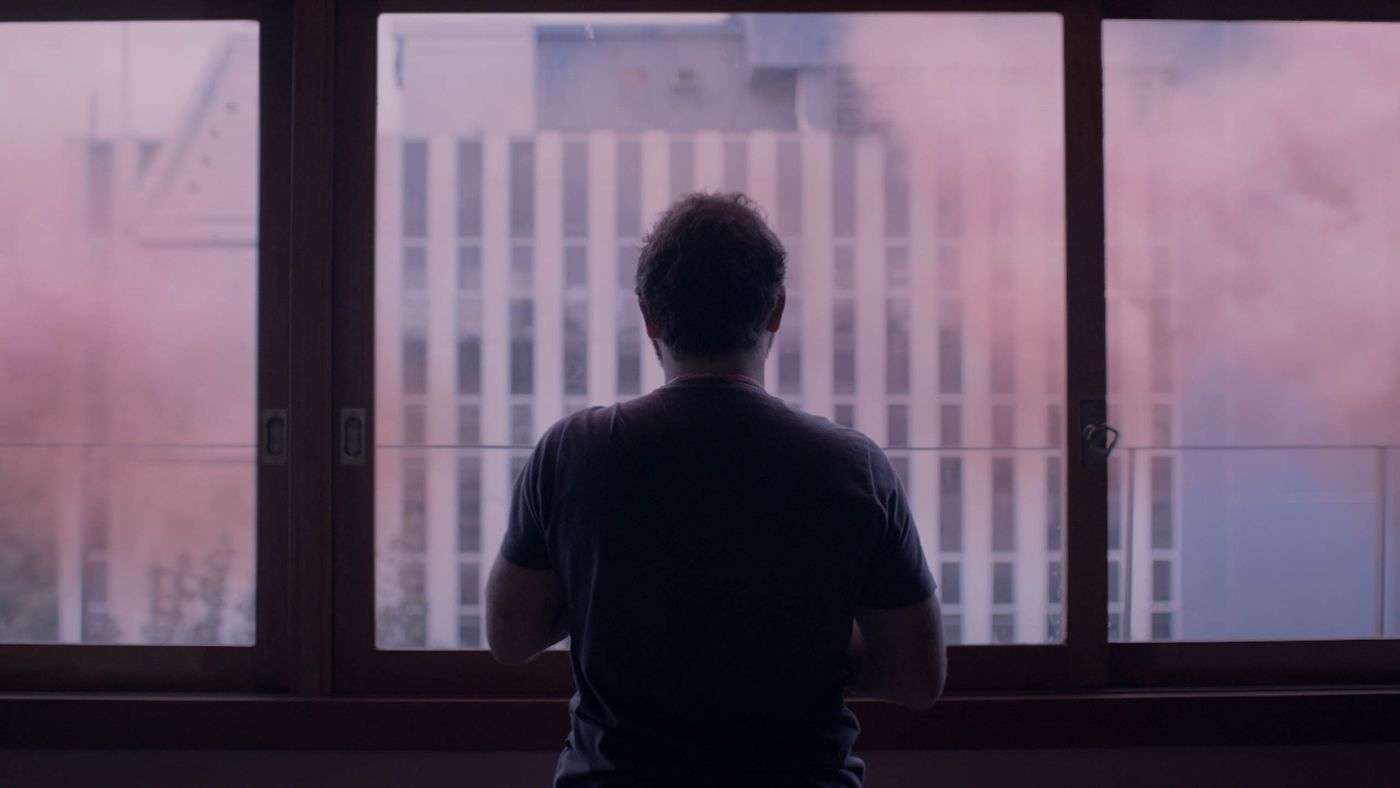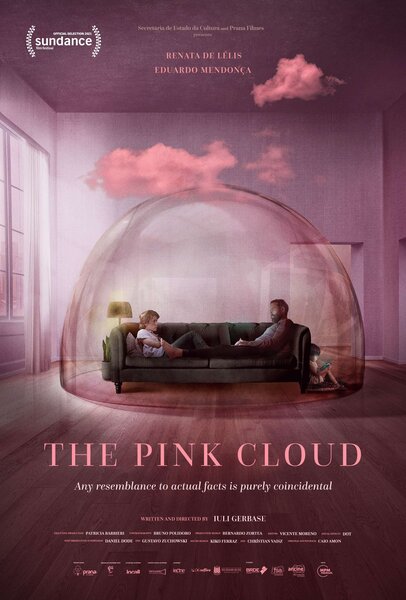Create a free profile to get unlimited access to exclusive videos, sweepstakes, and more!
'The Pink Cloud' director explains how his terrifying sci-fi drama accidentally foresaw the pandemic

It makes sense, now that we've been living in a pandemic for almost a full year at this point, that we're starting to see films that are specifically about this moment in time, such as Songbird and Locked Down, both of which were made during the outbreak. But, arguably the closest representation of life under the pandemic since the terrifyingly perceptive Contagion just premiered at the 2021 Sundance Film Festival — and it was made before most of us even know what COVID-19 was.
The Pink Cloud starts with a disclaimer clarifying that the film you're about to see was written in 2017 and filmed in 2019, and it quickly becomes clear why this was necessary. The movie opens in a Brazilian city just as a mysterious pink cloud descends, covering not only the city but the entire world. The rosy mist kills anyone if they're outside for longer than 10 seconds. The government announces that everyone needs to take shelter at their nearest building and all doors and windows should be closed indefinitely. Whether you're trapped at a bakery or a supermarket, or in the case of our protagonist, Giovana, at your date's apartment after a one-night-stand, that is your new home.
It doesn't take very long before the audience could understandably start to see themselves in the situation shown in the film, even if writer-director Iuli Gerbase never thought of making a movie that felt realistic. "I didn't have any world pandemic in mind, I just wanted to talk about a couple forced to be together in a sort of impromptu forced marriage," Gerbase tells SYFY WIRE. "I decided to go with the cloud because it didn't feel realistic, I didn't want them to be indoors because of a war or something more grounded."
In following the sci-fi inspirations for the film, the titular pink cloud looks surreal, like it was coming from a dream world. As Gerbase tells us, it was a way of making the situation "not look very threatening or dangerous" but instead almost hypnotic. "When people see it, it almost attracts the person, like you want to touch it. It's kind of poetic and seductive because it doesn't look like it could kill you. I chose pink because it's also a color society has related to girls and women, but you see that the female character is the one who suffers the most."
Billed as a sci-fi drama —though the plot is indeed often more of a domestic drama — the film features some seriously terrifying moments as the story moves along. Not because of anything "scary," mind you, but because of how closely it resembles our current situation. We see the characters quickly get tired of the same tedious FaceTime calls with family, of eating the same thing every day, and being unable to see other people. Though the film never changes focus to other characters, we still see the situation others find themselves in — a teenage girl is now trapped in a never-ending sleepover, a woman is left alone at her apartment because her husband went out to the store and isn't able to come back, an elderly man is trapped with his doctor who is still charging him.
Gerbase's script does a clever balancing act, both building the world of the film and showing us how society changes to accommodate this new global situation, without succumbing to the need to explain its minutiae. Online dating becomes the norm, so does online schooling. The government finds a way to feed the populace via delivery drones and a series of vacuum-sealed tubes stuck to windows, but The Pink Cloud's focus isn't on explaining the logistics of the situation. Gerbase says he was inspired by the Mexican surrealist film The Exterminating Angel, which also has a group of people trapped indoors with no explanation.
"I kept asking myself how much I should explain while I was writing the script," Gerbase says. “I thought the more I explained things, the more explanations the audience would look for, so I focus on how the characters themselves don't know how things work, but they get over it quickly because they don't have a choice. I didn't want it to have many sci-fi elements beyond the initial premise."
It's that compliancy that becomes the most quietly scary moments in The Pink Cloud. The initial desperation and anxiety over the global disaster quickly give way to acceptance for many of the characters, including half of our main duo. Giovana has plans, hopes, dreams, and she refuses to let the lockdown get in the way of all that. Meanwhile, her forced housemate, Yago, is coping by accepting his new reality and denying all the negative aspects of it. As days turn to weeks, then months, then years and years, the film puts equal weight and resonance on how the cloud changes the routine of both Giovana and Yago. For Giovana, one of the ways to cope is to escape to virtual reality. Eventually, we even see people pray to the cloud itself, as it is the cloud that has given people their current lives, and some are genuinely grateful for it.
"I wanted to show how a relationship changes with the years and with domesticity, only with the sci-fi twist," Gerbase says. "We see them react in very different ways but still sort of doing the same thing. They both deny different parts of reality."
Seeing the clashing ideals regarding whether to give up and surrender to the idea that this is the new normal, versus never-ending hope that the cloud — or the pandemic — will eventually disappear and life will return to normal, is an unforeseen yet poignant theme in The Pink Cloud. The film gives no immediate answer, but it still provides a catharsis with its open ending, no matter which character you identify with.
Of course, no matter the intentions when the film was shot in 2019, the real-life circumstances surrounding the film's release give it an extra layer that wasn't there before.
"It was very bizarre because I knew the film by heart," Gerbase says, explaining that her script has taken on an extra meaning. "But when I watched it during lockdown, I was like, 'Oh my God.' The lines the actors said changed meaning. We did post-production and editing during the pandemic, and everyone felt really weird watching this now after everything. One of the things the crew likes to joke about is that the least realistic thing in the film is how efficient the government is."



























